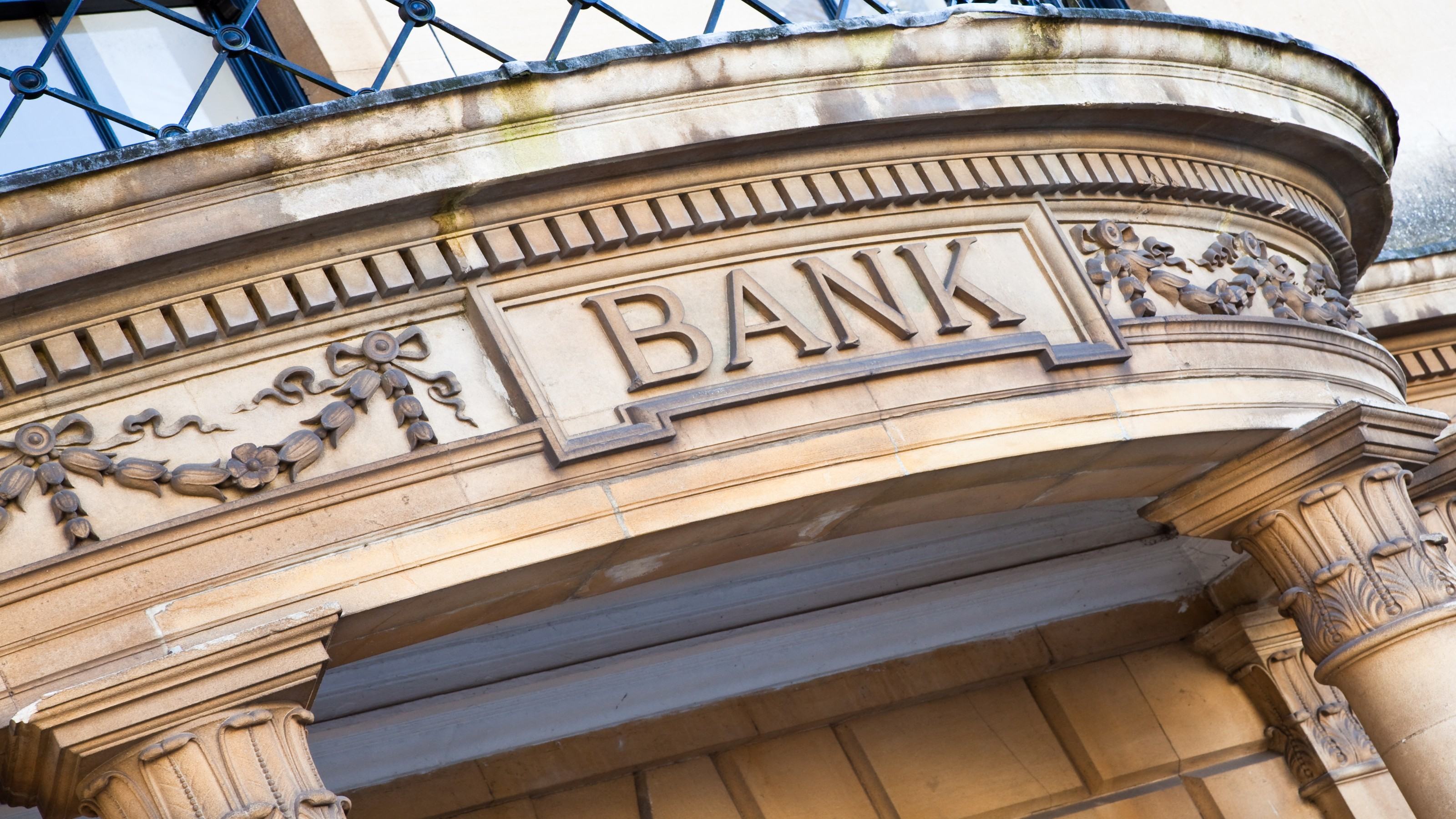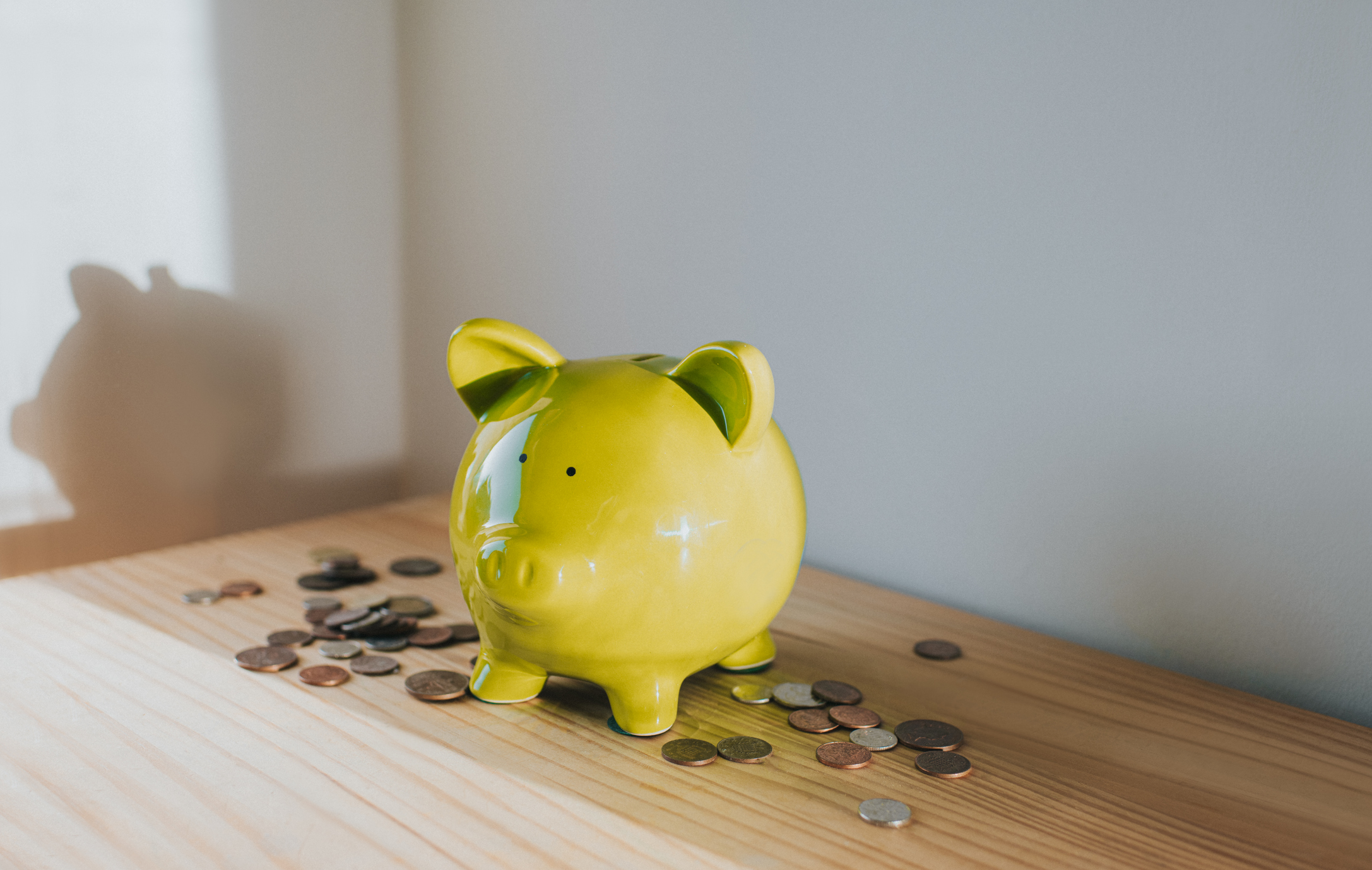Is it Time to Switch Banks?
Small institutions often offer the best savings yields, but credit cards from big banks come with valuable perks.


Profit and prosper with the best of Kiplinger's advice on investing, taxes, retirement, personal finance and much more. Delivered daily. Enter your email in the box and click Sign Me Up.
You are now subscribed
Your newsletter sign-up was successful
Want to add more newsletters?

Delivered daily
Kiplinger Today
Profit and prosper with the best of Kiplinger's advice on investing, taxes, retirement, personal finance and much more delivered daily. Smart money moves start here.

Sent five days a week
Kiplinger A Step Ahead
Get practical help to make better financial decisions in your everyday life, from spending to savings on top deals.

Delivered daily
Kiplinger Closing Bell
Get today's biggest financial and investing headlines delivered to your inbox every day the U.S. stock market is open.

Sent twice a week
Kiplinger Adviser Intel
Financial pros across the country share best practices and fresh tactics to preserve and grow your wealth.

Delivered weekly
Kiplinger Tax Tips
Trim your federal and state tax bills with practical tax-planning and tax-cutting strategies.

Sent twice a week
Kiplinger Retirement Tips
Your twice-a-week guide to planning and enjoying a financially secure and richly rewarding retirement

Sent bimonthly.
Kiplinger Adviser Angle
Insights for advisers, wealth managers and other financial professionals.

Sent twice a week
Kiplinger Investing Weekly
Your twice-a-week roundup of promising stocks, funds, companies and industries you should consider, ones you should avoid, and why.

Sent weekly for six weeks
Kiplinger Invest for Retirement
Your step-by-step six-part series on how to invest for retirement, from devising a successful strategy to exactly which investments to choose.
Large banks provide vast ATM networks, advanced technology and a wide array of products. But when it comes to interest rates on savings accounts, they’re often overshadowed by small banks and credit unions. While a number of local institutions and internet banks recently offered rates of 5% or more on savings accounts and money market deposit accounts, interest rates on some large banks’ accounts have barely budged since the Federal Reserve Board started hiking short-term rates in March 2022.
A 2023 research paper published by the UCLA Anderson School of Management concluded that customers of large banks are willing to accept low rates on their savings in exchange for other benefits large banks provide. Small banks are compelled to offer higher rates on deposits in order to stay competitive, the economists found.
The economists also concluded that customers of small banks are more price-sensitive than large-bank customers, who typically have higher incomes and live in urban areas. Small banks and credit unions tend to charge lower fees for monthly account maintenance and overdrafts, too.
From just $107.88 $24.99 for Kiplinger Personal Finance
Become a smarter, better informed investor. Subscribe from just $107.88 $24.99, plus get up to 4 Special Issues

Sign up for Kiplinger’s Free Newsletters
Profit and prosper with the best of expert advice on investing, taxes, retirement, personal finance and more - straight to your e-mail.
Profit and prosper with the best of expert advice - straight to your e-mail.
Large banks have also benefited from inertia, says Ken Tumin, founder of DepositAccounts.com, a website owned by LendingTree. Many customers of large banks don’t pay attention to what they’re earning on their savings after they open an account, providing little incentive for banks to raise rates, he says.
If you’re looking for a higher yield on your savings, check out accounts from internet banks, which offer many of the best deals. These institutions can offer extremely competitive rates because they don’t have to spend money on brick-and-mortar branches.
You can compare current rates on savings accounts by using the tool below.
The Fed left interest rates unchanged at its March meeting but signaled that it will likely cut rates later this year. If that happens, institutions of all sizes will lower their rates, too. Look for rates on high-yield online accounts to fall first, Tumin says. Some online banks have already reduced rates on certificates of deposit in anticipation of a Fed rate cut.
Fortunately, there’s no need to pledge fidelity to one bank or credit union. You may choose, for example, to locate your checking account at a small bank or credit union that doesn’t charge a monthly fee and invest your emergency savings in a high-yield online savings account.
Choosing the right credit card
Generally, interest rates on credit cards from small and medium-size banks and credit unions are lower than rates on cards issued by large financial institutions, even for borrowers with good credit, according to a recent analysis by the Consumer Financial Protection Bureau. For example, the median interest rate for people with good credit was 28.20% for large credit card issuers compared with 18.15% for small issuers, according to the CFPB.
While that’s a significant difference, carrying a balance on a credit card with an 18% interest rate is no bargain, says Ted Rossman, senior analyst for CreditCards.com. Before March 2022, when the Federal Reserve Board embarked on a series of rate hikes in an effort to throttle inflation, it was possible to find credit cards that charged as little as 6% or 7%, but that’s no longer the case, he says.
Use the tool below to compare fast, personalized credit card offers.
Instead of hunting for a low-rate credit card, Rossman says, endeavor to pay off your card’s balance every month so that you avoid interest altogether. Consumers who don’t carry a balance can come out ahead with the numerous perks that rewards credit cards from big banks offer, such as frequent-flier miles and cash back on a variety of purchases. (Kiplinger keeps a list of our favorite rewards cards).
While the CFPB found that credit cards from large banks were more likely to charge annual fees, there are plenty of major credit cards — including some with generous rewards structures — that charge no annual fee.
Big banks are also more likely to offer balance-transfer deals with an interest rate as low as 0% for a specific period. While these offers provide a way to reduce the interest you pay on your debt, they make sense only if you pay off the balance before the 0% window expires. Otherwise, you’ll likely end up paying a double-digit rate on the remaining balance.
How to break up with your bank
Switching to a bank or credit union that offers a higher yield on your savings could significantly increase the amount of interest you earn. However, the process may take several weeks.
What you need to do:
- Open the new account before closing the old one. You may be able to do this online. Make sure your initial deposit is large enough to avoid low-balance fees.
- Contact your employer (or the Social Security Administration, if you’re receiving benefits) and arrange to have direct deposits switched to your new account. Make sure you include all accounts, such as TreasuryDirect, that deposit funds periodically.
- Contact all providers, such as utilities and streaming services, that debit your account, and provide them the information for your new account. If you use your bank’s bill-pay service, cancel the bill payments at your previous bank’s site and enroll at your new bank’s site.
- Make sure all automatic payments and outstanding checks have cleared before closing your old account.
Note: This item first appeared in Kiplinger's Personal Finance Magazine, a monthly, trustworthy source of advice and guidance. Subscribe to help you make more money and keep more of the money you make here.
Related Content
Profit and prosper with the best of Kiplinger's advice on investing, taxes, retirement, personal finance and much more. Delivered daily. Enter your email in the box and click Sign Me Up.

Block joined Kiplinger in June 2012 from USA Today, where she was a reporter and personal finance columnist for more than 15 years. Prior to that, she worked for the Akron Beacon-Journal and Dow Jones Newswires. In 1993, she was a Knight-Bagehot fellow in economics and business journalism at the Columbia University Graduate School of Journalism. She has a BA in communications from Bethany College in Bethany, W.Va.
-
 Dow Loses 821 Points to Open Nvidia Week: Stock Market Today
Dow Loses 821 Points to Open Nvidia Week: Stock Market TodayU.S. stock market indexes reflect global uncertainty about artificial intelligence and Trump administration trade policy.
-
 Nvidia Earnings: Live Updates and Commentary February 2026
Nvidia Earnings: Live Updates and Commentary February 2026Nvidia's earnings event is just days away and Wall Street's attention is zeroed in on the AI bellwether's fourth-quarter results.
-
 I Thought My Retirement Was Set — Until I Answered These 3 Questions
I Thought My Retirement Was Set — Until I Answered These 3 QuestionsI'm a retirement writer. Three deceptively simple questions helped me focus my retirement and life priorities.
-
 Dow Loses 821 Points to Open Nvidia Week: Stock Market Today
Dow Loses 821 Points to Open Nvidia Week: Stock Market TodayU.S. stock market indexes reflect global uncertainty about artificial intelligence and Trump administration trade policy.
-
 Nvidia Earnings: Live Updates and Commentary February 2026
Nvidia Earnings: Live Updates and Commentary February 2026Nvidia's earnings event is just days away and Wall Street's attention is zeroed in on the AI bellwether's fourth-quarter results.
-
 How You Can Use the Financial Resource Built Into Your Home to Help With Your Long-Term Goals
How You Can Use the Financial Resource Built Into Your Home to Help With Your Long-Term GoalsHomeowners are increasingly using their home equity, through products like HELOCs and home equity loans, as a financial resource for managing debt, funding renovations and more.
-
 How to Find Free Money for Graduate School as Federal Loans Tighten in 2026
How to Find Free Money for Graduate School as Federal Loans Tighten in 2026Starting July 1, federal borrowing will be capped for new graduate students, making scholarships and other forms of "free money" vital. Here's what to know.
-
 5 Tips To Get Your Kids Investing as Soon as Possible
5 Tips To Get Your Kids Investing as Soon as PossibleTeaching your kids to invest early will help them build a solid financial future. Here are five ways to get them started.
-
 Aging in Place Can Be Bad for Your Health: This Financial Pro's Alternative Is a No-Brainer
Aging in Place Can Be Bad for Your Health: This Financial Pro's Alternative Is a No-BrainerWhy age alone in financial hardship when you can enjoy companionship — and share the costs of housing, groceries and health care — with a small community of friends?
-
 Want to Buy a Home With a Friend? Here's How to Prevent Legal Headaches
Want to Buy a Home With a Friend? Here's How to Prevent Legal HeadachesWith rising home prices leading more people to co-buy homes with friends, it's essential to have a co-tenancy agreement that clearly defines the deal.
-
 When It Comes to Retirement Planning, Be More Spock Than Scotty: It's Logical, Captain
When It Comes to Retirement Planning, Be More Spock Than Scotty: It's Logical, CaptainIf you're worried about your retirement, address the concerns in a logical sequence, talk honestly with your team and prepare to go boldly into the future.